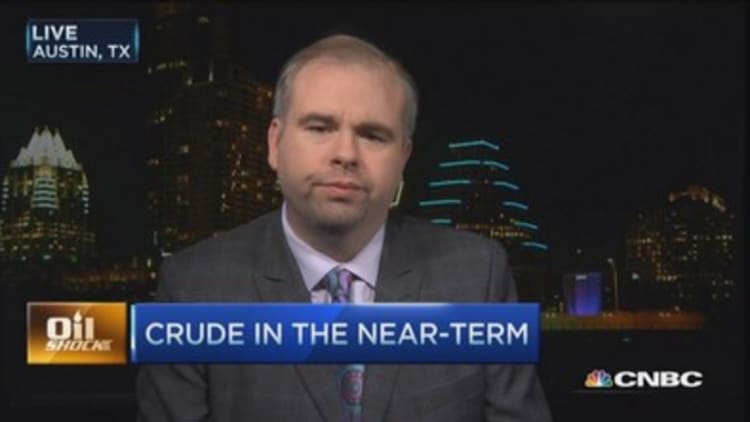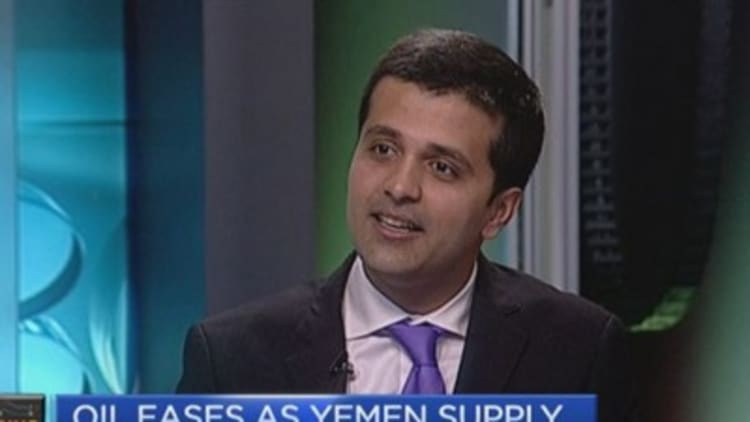U.S. crude settled down 5 percent at $48.87 a barrel on Friday as fears about the disruption of Middle East crude shipments from Yemen's conflict eased, and focus turned to the likelihood of an Iranian nuclear deal by next week that could put more supply on the market.
But prices were still headed for a second straight week of gains, reflecting the ground made by market bulls from six-year lows hit earlier this month.
and U.S. crude were down more than 2 percent in New York's morning trade after reduced threats to the region's oil facilities and traffic from the Saudi-led air strikes in Yemen.
Read MoreBuckle up! Oil 'could fall to $30' say trading pros
The number of rigs drilling for oil in the United States declined by 12 this week to 813, the smallest decline since December, oil services firm Baker Hughes said in its closely watched survey on Friday.
That compares with declines of 41 and 56 rigs in the prior two weeks and is a sign the collapse in drilling over the past few months has slowed.
With the decline this week, the number of oil rigs has fallen for a record 16th week in a row to the lowest level since 2011, according to Baker Hughes data going back to 1987.



Brent was down $2.46 at $56.73 a barrel by 2:21 p.m. EDT (1821 GMT).
For the week, Brent was up more than 4 percent and U.S. crude settled about 7 percent higher, after gains from earlier sessions when the dollar was weaker.
Read MoreDon't worry too much about Yemen conflict: Oil analyst
Western nations brokering a nuclear deal for Iran indicated they may achieve before the end of March some sort of agreement that Tehran hopes will lift sanctions curbing its oil exports.
Tehran is keen to recover market share lost under the U.S.-led sanctions that have restricted its crude exports to just 1 million barrels per day from 2.5 million bpd in 2012.
British Foreign Secretary Philip Hammond said on Friday parties at the nuclear talks in Lausanne, Switzerland were "better than halfway" in terms of areas where they were close to agreement.
France's Foreign Minister Laurent Fabius concurred there had been progress but said the focus was on getting the content for the deal right, rather than meeting the deadline.
Read More How oil is preparing for a new world order
"Both sides have a lot of skin in the game in terms of the pressure to deliver something, so we're probably going to hear noise that they have a deal or are close enough but will have to postpone to another deadline," said John Kilduff, partner at New York energy hedge fund Again Capital.
Oil had jumped around 5 percent on Thursday on fear the conflict in Yemen could disrupt cargoes on the neighboring Bab el-Mandeb Strait, where 3.8 million bpd of crude and oil products flow.
But influential Wall Street bank Goldman Sachs said Yemen was only a small crude exporter, and oil tankers could avoid passing its waters to reach their ports of destination.

